Can Betta Fish Live in Tap Water? (2024)

Betta fish - those majestic finned royalty of the fish world. Their vibrant hues and flowing fins have graced many an aquarium. And now, you've decided you want one to reign over your home's aquatic kingdom. But wait...tap water? Can King Betta and Lady Tap Water live in harmonious matrimony?
Here's the lowdown:
- Tap Water: Safe or no-go for Betta?
- Water Conditioners: Which ones are the best?
- Chlorine Trouble: Why it's a buzzkill for Betta.
You see, not all water is created equal, especially in the eyes (or should I say gills?) of our Betta buddies.
So, are you ready to navigate these waters like a seasoned captain? Prepare to embark on the ultimate deep-sea expedition as we decipher the riddle of Betta fish and their H2O haute couture preferences.
Ready to get your fins wet? Let's roll!
Betta Fish Care and Information
- Temperament: Peaceful
- Care Level: Easy
- Diet: Bloodworms, Brine shrimp, Daphnia, and Vinegar eels
- Adult Size: 2.5 — 3.5 inch
- Lifespan: 2 — 5 years
- Water Temperature: 75°F — 82°F
- Water pH: 6.5 — 7.5
- Tank Size: Minimum of 5 Gallons

Understanding Tap Water and Betta Fish
You might be thinking, "Water is water, right?" But when it comes to the world of our dear Betta, or the Siamese fighting fish, the story isn't that simple. The natural habitat of Betta fish includes rice paddies and tropical water systems. To replicate this environment, understanding the intricacies of tap water becomes vital.
If you're keen to learn more about Betta fish, we've crafted a dedicated article guide tailored for beginners, detailing how to properly care for these vibrant creatures.
Betta Fish: Care Guide (ARTICLE LINK)

Is Tap Water Safe for Betta Fish?
This is the million-dollar question (or at least the price of a really fancy Betta). Your average tap water contains a concoction of chemicals like chlorine and chloramine. Municipal tap water is treated to make it safe for us humans by eliminating harmful bacteria and other potentially dangerous chemicals.
But what's good for us isn't always good for our finned friends.
For starters, chlorine poisoning is a real thing for fish. While having a sip from your tap might be refreshing for you, for a Betta, it's like taking a dip in a chemical soup. Heavy metals, which are often found in tap water, can also be detrimental to freshwater fish like Bettas.
However, if you're a fan of the Environment Protection Agency and their guidelines, you'll know that using distilled water isn't a solution either. Distilled water lacks the essential minerals beneficial for Betta fish.
NOTE: the challenge isn't just about choosing between hot and cold water; it's about ensuring your Betta's water is just right.

Importance and Selection of Water Conditioners for Betta Fish
Water Conditioners: these magical concoctions remove chlorine, chloramine, and even some heavy metals, ensuring your betta tank is a safe haven for your fish.
💧 Procedure to Use Water Conditioners for Betta Fish:
- Choose Wisely: Begin by selecting a top-notch water conditioner designed especially for Betta fish. Some of our champion picks include API TAP WATER CONDITIONER and Tetra AquaSafe Plus.
- Reading is Fundamental: Before pouring, make sure to read the instructions on the bottle. Each brand has its own concentration, and you don’t want to turn your tank into a chemical soup.
- Measure It Out: Using the recommended dosage (often a capful treats a certain number of gallons), add the conditioner to a separate container filled with tap water.
- Mix It Up: Stir the water to ensure even distribution of the conditioner.
- Wait for It: Allow the treated water to sit for about 15-20 minutes. This gives the conditioner time to neutralize harmful substances.
- Pour It In: Gradually introduce the conditioned water into your Betta tank.

Top-Rated Water Conditioners for Betta Fish
To help you narrow down your choices, we have compiled a list of The Top 4 Water Conditioners for Betta Fish based on customer reviews, ratings, and expert opinions;
In a hurry? I recommend API TAP WATER CONDITIONER
API TAP WATER CONDITIONER
The API TAP WATER CONDITIONER is an essential product for neutralizing chlorine and detoxifying heavy metals. It is especially recommended for betta tanks and offers a rapid formula that immediately makes tap water safe for fish. The 8 oz bottle treats up to 4740 gallons, making it long-lasting and efficient.
Pro Tip: A small dosage of this conditioner goes a long way. For regular water changes, a few drops suffice, making it not only efficient but also economical in the long run.
Pros:
- Instantly neutralizes harmful chemicals.
- Suitable for both freshwater and saltwater tanks.
- Easy to use with a clear dosing guide.
- Promotes a healthier environment for fish.
- Cost-effective.
Cons:
- Bottle might be challenging to squeeze.
- Overdosing can be harmful.
✅ Short Review from a Verified Customer:
“I've been using the API conditioner for my betta for over six months, and the difference is noticeable. His colors are vibrant, and he seems much more active. The water also remains clearer for longer. Highly recommended!”
Aqueon Betta Bowl Plus Water Conditioner
Aqueon Betta Bowl Plus Water Conditioner, available in a 2 pack set, is a versatile solution for small bowls and aquariums. Tailored for Betta fish tanks, this conditioner also aids in restoring the fish's protective slime coat. Talk about a double whammy!
Pro Tip: This conditioner also aids in replenishing the natural slime coating that bettas may lose due to rough handling or scrapes.
Pros:
- Multifunctional with stress-reducing properties.
- Contains essential trace minerals.
- Promotes vibrant colors and health in bettas.
- Perfect for small tanks and bowls.
Cons:
- May require more frequent dosing for larger tanks.
- Not as concentrated as other brands.
✅ Short Review from a Verified Customer:
“My bettas have thrived ever since I started using Aqueon. The water remains fresh for longer, and the fish seem much more energetic. The dual pack is also great value for money.”
Aqueon Aquarium Water Conditioner Bottle
The Aqueon Aquarium Water Conditioner is a perfect blend for both beginner and seasoned aquarium enthusiasts. It not only neutralizes harmful chlorine and chloramines but also aids in restoring a fish's natural slime coat. This 8-ounce bottle is specially crafted to make tap water safe for fish, ensuring your betta thrives in a near-natural environment.
Pro Tip: Remember, it's always better to be precise. Use the recommended dose to ensure the well-being of your aquatic pets and to maintain the tank's water balance.
Pros:
- Comprehensive water treatment
- Suitable for all freshwater and marine aquariums.
- Immediate action ensures quick results.
- Helps in reducing fish stress during water changes.
- Simple and easy to follow dosing instructions.
Cons:
- Consistency might be slightly thick for some users.
- Always ensure to dose accurately; over-conditioning can offset the water balance.
✅ Short Review from a Verified Customer:
"I was skeptical at first but gave the Aqueon conditioner a shot. I've noticed a significant difference in the water quality, and my betta, Luna, seems much happier. Her fins are looking better, and she's much more lively during her swims. This product is a game-changer for any aquarium setup!"
Tetra AquaSafe Plus
Tetra AquaSafe Plus is renowned for turning tap water into fish-safe water in seconds. With a unique formula that binds to heavy metals and neutralizes chlorine and chloramine, it’s a favorite among fish enthusiasts. The conditioner also contains seaweed extracts to support the natural protective mucus of fish.
Pro Tip: For tanks with sensitive species, ensure that you adhere to the recommended dosage to avoid any imbalances.
Pros:
- Quick acting formula.
- Contains natural biopolymers for added protection.
- Suitable for both tropical and marine tanks.
- High volume bottle for extended use.
Cons:
- Measurement instructions might be unclear for beginners.
- Might need more product for very hard water.
✅ Short Review from a Verified Customer:
“I trust Tetra for all my tanks. The AquaSafe Plus ensures my fish remain lively and their environment clean. The conditioner also seems to improve water clarity, which is a bonus.”

Testing Water Quality: An Essential for Betta Care
I cannot stress this enough: water quality is to fish what a comfy bed is to humans. And just like you'd want a bed that's neither too hard nor too soft, you'd want your Betta's water to be just right.
To avoid fish death and ensure the longevity of your Siamese fighting fish, invest in a good water testing kit. These kits will provide insights into the pH levels, ammonia, nitrate, and other chemicals present in the tank's water.
🔍 Procedure to Test Betta Water Quality:
- Kit Selection: Begin with a reliable water testing kit. We're talking the likes of API FRESHWATER MASTER TEST KIT or the 17 in 1 Premium Drinking Water Test Kit.
- Follow Instructions: Unwrap your kit and get familiar with those instructions. Yeah, I know, but trust me, it’s important.
- Sample Collection: Using the provided vial, collect a water sample from your Betta tank.
- Add Reagents: Depending on your kit, you'll likely add drops or tablets to your water sample. This will cause a color change.
- Compare: Match the color of your sample with the provided color chart. This will give you insights into parameters like pH, ammonia, nitrites, and more.
- Document: Maintain a log of your results. Monitoring changes over time can be super insightful!

Top-Rated Water Testing Kits for Betta Fish
To help you narrow down your choices, we have compiled a list of The Top 2 Water Testing Kits for Betta Fish based on customer reviews, ratings, and expert opinions;
In a hurry? I recommend API FRESHWATER MASTER TEST KIT
API FRESHWATER MASTER TEST KIT
The API FRESHWATER MASTER TEST KIT offers a comprehensive water analysis solution. Packed with tests for ammonia, nitrite, nitrate, pH, and high range pH, it's an essential kit for every betta fish owner. Each kit boasts enough materials to conduct 800 tests, ensuring long-term use and reliable results every time.
Pro Tip: To get the most accurate results, always follow the step-by-step guide and shake the test solutions before use. Color cards are provided to help you analyze results seamlessly.
Pros:
- Comprehensive testing parameters.
- Generous 800 test count.
- Clear and detailed instructions.
- Suitable for beginners and experienced users.
- Encourages proactive tank health management.
Cons:
- Bottles may leak if not closed tightly.
- Colors might be slightly challenging to differentiate for some.
✅ Short Review from a Verified Customer:
“I have been in the aquarium hobby for years, and the API kit remains a staple for me. It’s reliable, straightforward, and gives me peace of mind, knowing my betta is swimming in a safe environment.”
17 in 1 Premium Drinking Water Test Kit
This 17 in 1 Premium Water Test Kit offers a vast array of tests in a user-friendly strip format. Ideal for those who want a quick snapshot of their tank’s health, it tests for elements such as lead, bacteria, hardness, fluoride, pH, iron, copper, and more. Each kit contains 100 strips, ensuring extended use.
Pro Tip: For best results, make sure you store the strips in a cool, dry place. Also, compare the strip color promptly with the color chart to get the most accurate readings.
Pros:
- Broad spectrum of tests.
- Convenient strip format.
- Quick results in minutes.
- Easy to use, even for beginners.
- Additional bacteria tests for comprehensive water analysis.
Cons:
- Some strips might give variable results if not stored properly.
- Color differentiation might be a bit subtle for some tests.
✅ Short Review from a Verified Customer:
“I'm not an expert in aquariums, but these strips make me feel like one! They're easy to use, and the results are straightforward to understand. It's a game-changer for my betta's tank, ensuring he has the best environment possible.”

Keeping the Water Clean: Filters and Their Benefits
Now that we've settled the tap water debate, let's swim over to another important topic: filters. Having a filter in your betta fish tank doesn't just mean clearer water. It also means a happier, healthier Betta.
Filters eliminate fish waste, excess food, and other debris, ensuring the water remains clean. They also foster beneficial bacteria, essential for breaking down harmful substances in the water. Plus, they help maintain a stable water temperature, ensuring the betta's water is neither too hot nor cold.
🔧 Procedure to Install a Filter for Your Betta Tank:
- Filter Selection: The quest begins at your local pet store or online. Favorites among the realm include Aqueon Betta Filters Volcano One Size and Hygger Aquarium Double Sponge Filter.
- Unboxing and Assembly: Once you've got your filter, unpack and assemble it following the manufacturer's instructions.
- Placement: Place the filter in an appropriate spot in the tank. Generally, you'd place it towards the back for aesthetics and maximum circulation.
- Prime the Filter: Before turning it on, make sure to prime your filter if required. This often involves pouring some tank water into the filter to ensure it starts smoothly.
- Plug and Play: Connect your filter to a power source and turn it on. Watch as it works its magic, keeping the water cleaner and clearer.
- Maintenance: Every few weeks, remember to clean or replace the filter media to ensure it remains effective.

Top-Rated Filters for Betta Fish
To help you narrow down your choices, we have compiled a list of The Top 3 Filters for Betta Fish based on customer reviews, ratings, and expert opinions;
In a hurry? I recommend Aqueon Betta Filters Volcano
Aqueon Betta Filters Volcano
The Aqueon Betta Filters Volcano is more than just a filter; it's an aesthetic addition to your betta's tank. Designed to resemble a volcanic eruption, this filter acts both as a visual centerpiece and a powerful filtration device. It is crafted for small to medium-sized tanks and is tailored for a betta's gentle flow preference.
Pro Tip: Incorporate this filter in a thematic aquarium setup, perhaps one with fiery-colored stones and plants, to enhance its volcanic visual appeal.
Pros:
- Unique design enhancing tank aesthetics.
- Effective filtration tailored for betta fish.
- Whisper-quiet operation.
- Easy to install and maintain.
- Suitable for small to medium-sized tanks.
Cons:
- Might occupy slightly more space due to design.
- Filter cartridges might need frequent replacements.
✅ Short Review from a Verified Customer:
“This filter is an absolute masterpiece! Not only does it keep my betta's water crystal clear, but it also adds an amazing visual touch to the entire setup. The gentle flow ensures my betta remains stress-free.”
UPETTOOLS Aquarium Biochemical Sponge Filter
The UPETTOOLS Aquarium Biochemical Sponge Filter brings both mechanical and biological filtration to your tank. This sponge filter, equipped with spare sponges and bio ceramic media balls, ensures effective filtration while promoting the growth of beneficial bacteria. The ultra-quiet air pump makes it an excellent choice for betta tanks in bedrooms or quiet spaces.
Pro Tip: Periodically clean the sponge in tank water during water changes to retain beneficial bacteria and extend the life of the sponge.
Pros:
- Dual filtration (mechanical and biological).
- Comes with spare sponges and bio ceramic media balls.
- Silent operation ideal for peaceful spaces.
- Encourages beneficial bacteria growth.
- Durable and easy to clean.
Cons:
- Might be bulky for very small tanks.
- Air pump needs to be bought separately.
✅ Short Review from a Verified Customer:
“The UPETTOOLS filter has transformed my betta tank. The water stays clean for longer, and the silent operation is a massive plus. My betta seems happier and more vibrant. Two thumbs up!”
Hygger Aquarium Double Sponge Filter
The Hygger Aquarium Double Sponge Filter is a compact powerhouse perfect for betta tanks. With a double sponge design, it maximizes filtration efficiency while providing a gentle flow ideal for betta fish. The added bonus of two spare sponges ensures that you have replacements on hand for periodic maintenance.
Pro Tip: Place this filter in a corner or behind decorations to maximize swimming space for your betta while keeping the filtration effective.
Pros:
- Efficient double sponge design.
- Comes with two spare sponges.
- Gentle flow ideal for betta fish.
- Compact design suitable for various tank sizes.
- Durable and long-lasting.
Cons:
- Some users might find the suction cups less sticky.
- Needs periodic cleaning to maintain flow.
✅ Short Review from a Verified Customer:
“I was skeptical about sponge filters, but this hygger filter changed my mind. It's efficient, quiet, and my betta loves swimming around it. The water clarity has significantly improved since I started using it. Highly recommended!”

CAUTION: Why Are Chlorine and Chloramine Dangerous to Bettas?
Imagine a scenario where you're dancing in the rain, and suddenly, the rain turns into a shower of soda. Sounds weird, right? That's how Betta fish feel when exposed to untreated tap water.
Chlorine and chloramine are used in municipal tap water to kill harmful bacteria. But the same chemicals that make our water safe can be lethal for fish. These substances disrupt the protective slime coat on fish, making them more susceptible to disease and stress.
Tips to Make Tap Water Safe for Betta:
- Water Conditioners: Invest in a good water conditioner to neutralize chlorine, chloramine, and other harmful substances.
- Water Testing Kits: These kits will help you keep an eye on the pH, hardness, and other essential parameters of the water.
- Water Aging: Allow tap water to sit for 24-48 hours before introducing it to the aquarium. This can help in the natural dissipation of some harmful chemicals.

FAQs About Conditioning Water for Betta Fish
Can You Put Betta Fish In Tap Water Overnight?
Technically, you can, but it isn't recommended.
Tap water often contains chemicals harmful to bettas. If you must use tap water for a short period, ensure you treat tap water with a betta water conditioner to neutralize harmful substances.
Can You Use Tap Water for Betta Fish?
Yes, but with a caveat. Tap water needs to be treated with a water conditioner before introducing your male betta fish. This neutralizes harmful chemicals like chlorine, ensuring the betta's tank environment is safe.
How Long Can a Betta Fish Live in Untreated Tap Water?
This varies. Some might survive a few days, while others might show signs of stress or illness in a matter of hours.
NOTE: it's essential always to ensure water is treated to prevent unnecessary risk.
Can Betta Fish Live in Tap Water without Conditioner?
For the long-term health and happiness of your Betta, always use a conditioner.
Untreated tap water can lead to stress, illness, or even shorten the lifespan of your tropical fish.
What Is The Best pH Level For Betta Fish?
Betta fish thrive in a pH range of 6.5 to 7.5. Keeping the pH level within this range ensures a comfortable environment for your Betta.
An aquarium light can help maintain the right pH if it fluctuates too much.
Do Betta Fish Need A Filter?
While Betta fish can survive without a filter, having one ensures better water quality and circulation.
It helps maintain the same temperature, oxygenate the water, and remove waste.
How To Change Betta Fish Water Without A Siphon?
You can use a cup or small container to scoop out old water slowly. Then, slowly add fresh water (preferably treated or conditioned) to the betta aquarium.
NOTE: ensure the new tank water is of the same temperature to avoid shocking the fish.
How Do You Test Water For Betta Fish?
Using water test kits available at pet stores, you can check parameters like pH, ammonia, and nitrite levels.
This ensures your tanks water remains ideal for your Betta's health.
Well Water for Betta Fish?
Well water might be free from chemicals like chlorine but can contain heavy metals or other minerals.
It's best to test well water and treat it with conditioners or use activated carbon in filters before introducing your Betta.
Spring Water for Betta Fish (Bottled Water)?
Bottled spring water is generally soft water and free from harmful chemicals. However, it might lack essential minerals.
If using bottled spring water, ensure you supplement it with betta specific water conditioners to ensure the right balance.
How Long Does It Take to Dechlorinate Water For Fish?
While water conditioners act instantly, if you're letting water sit to dechlorinate naturally, it can take 24-48 hours. However, note that this method doesn't remove chloramines, which some municipal water sources use. Always verify with your local environmental protection agency.
Further Reading Recommendations
Water quality is paramount for the well-being of your aquatic pets. If you're looking to further enhance your knowledge and maintain a pristine aquatic environment, here are two articles that might be of interest to you:
- How to Clean your Freshwater Aquarium: Dive deep into the comprehensive steps and methods to ensure your aquarium remains clean, ensuring your fish thrive in a healthy environment.
- Do Nano Tanks Need a Heater?: Explore the intricacies of maintaining nano tanks, particularly the significance and need for heaters in these compact aquatic systems. Ensure your smaller fishy friends have the optimal environment for their well-being.
- The Best Nano Reef Fish: This article provides valuable insights into selecting suitable fish for nano reef tanks. Learn about the species that thrive in smaller marine environments, their care requirements, and how to create a harmonious and vibrant nano reef community.

Conclusion
To put it in simple words: yes, Betta fish can live in tap water, but it needs to be treated right.
Investing in a good water conditioner, ensuring optimal water quality with test kits, and keeping the water clean with efficient filters is the way to go.
By providing your Betta with the best care, you're not just ensuring its survival but giving it a chance to thrive and show off its vibrant hues. After all, they're not just any fish; they're a mesmerizing addition to your home, deserving of the best.
REMEMBER: whether it's rain water or city water, it's the love and care you put into your Betta's environment that truly makes a difference.
Join Our Community!
If you're as passionate about Betta fish and aquariums as we are, we invite you to be a part of our thriving Facebook community group, "Aquariums for Beginners." With over 450k active members, it's a hub of knowledge, fun, and camaraderie.
Dive into lively discussions, share your beautiful aquarium setups, pets, and even enjoy the lighter side with aquarium-related memes.
See you in the group! Safe swimming and happy sharing!
FACEBOOK COMMUNITY GROUP (LINK)
No comments









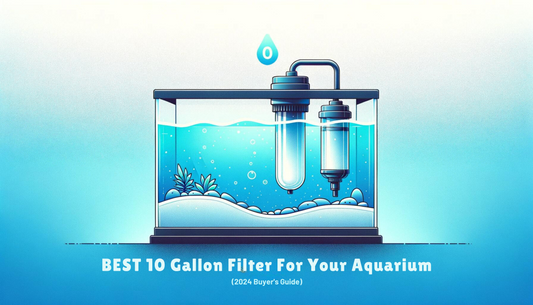
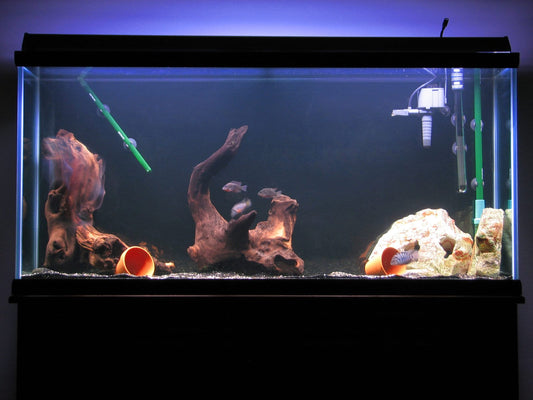
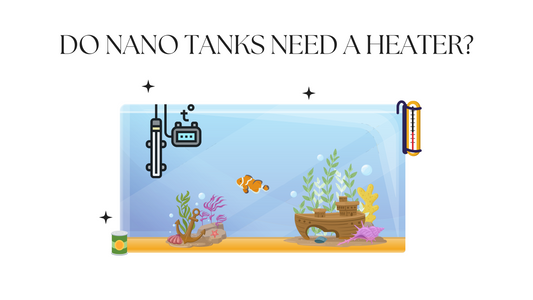
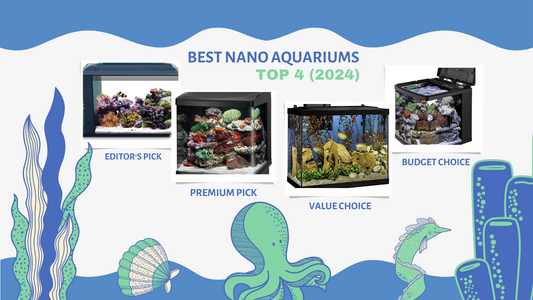
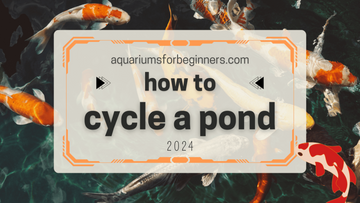
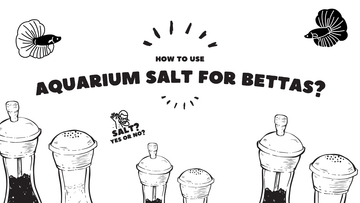
comments